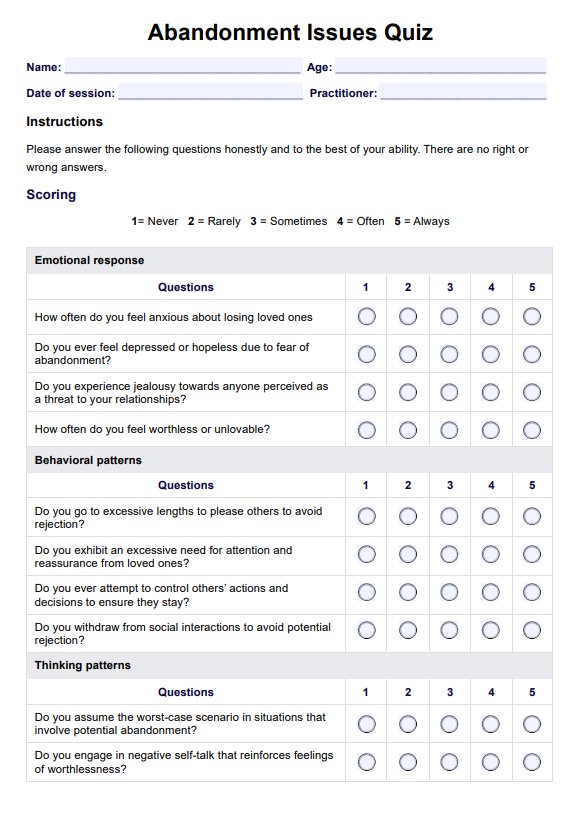Primarily, it is the fear of abandonment and related thoughts, feelings, and behaviors.

Abandonment Issues Quiz
Support your clients by using this Abandonment Issues Quiz, a resource designed to provide valuable insights into your client's emotional well-being.
Use Template
Abandonment Issues Quiz Template
Commonly asked questions
Individuals experiencing abandonment symptoms, seeking self-awareness, or professionals working with individuals who may be facing these issues.
This is not a diagnostic resource. Results may indicate potential abandonment issues. It is always a good idea to seek further professional guidance, allow self-reflection, and explore coping strategies.
EHR and practice management software
Get started for free
*No credit card required
Free
$0/usd
Unlimited clients
Telehealth
1GB of storage
Client portal text
Automated billing and online payments











